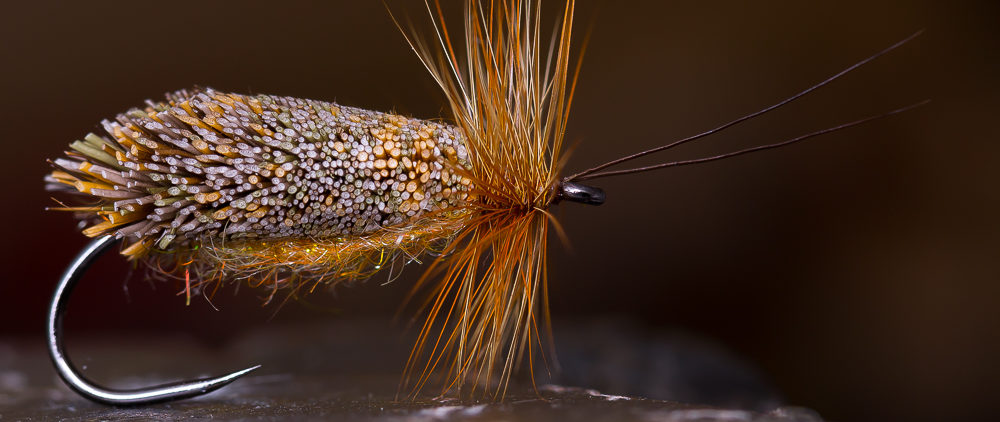This time I tied a natural – sand – colored shrimp. This is the fourth try. Now, after a little bit of experience in tying these little fellows, it’s getting faster and easier every time. Fun tying!
Schlagwort-Archive: The One Fly
Magic Shrimp # 3
Wet Fly „Struppi“
I’m not a wet fly guy. If I remember right, I fished wet flies less than 10 times in more than 20 years of fly fishing. I don’t know why, but it was not „my style“. I prefered more natural looking patterns like CDC dries, nymphs and emerger. I know, that wet flies are catching a lot of fish and some also imitate insects like stillborns or drowning duns, but…. I just don’t like to fish them. That’s also the reason, why I don’t have much experience in tying wet flies. I tied less than 12 classical wet flies in my life.
This year I’ll promised myself to give them more often a chance. That means, that I have also to learn to tie them. Most important, I have to know the materials, especially the feathers for the wings and how they react, when you tie them in.
„Struppi“ is one of the first wet flies. It’s kind a freestyle march brown. It’s not a „pretty“ fly, but looks very fishy. I mixed a little bit of Ice Dub into the Hare’s Ear Dubbing and so there are some light reflexes in the body. I ribbed it with mono and the tail and the front hackle is made from partridge. For the wing, I’ve used mottled turkey. As hook I choosed a Kamasan B 405 # 12.
Easy Caddis Larva
That is a simple weighted Caddis Larva. Not too many materials, just a few tying steps and no expensive materials. Just a good fishing fly.
Materials:
- Hook: Gamakatsu F22 #10
- Thread: Uni 8/0 Black
- Weight: Lead Wire
- Tail: Natural CDC
- Ribbing: Mono
- Back: Stretch Flex Clear
- Dubbing: Abdomen Hare’s Ear mixed with Ice Dub, Thorax Peacock Dubbing Brown
- Coloration: Marker Pens
Dry Fly # 14
#12
First fly in 2015!
Last flies for 2014
X-Mas flies
Used some quiet hours for some tying of nymphs for my fishing in the next year.
Materials:
- Maruto C47 BL #14
- Small tungsten beads in copper and black nickel
- Coq de Leon for the tails
- Copper wire and mono for the ribbing
- Pheasant for the abdomen
- Peacock dubbing brown for the thorax
- Pheasant for the wing case
- Partridge for the legs
- Bug Bond Lite to secure the wing case and the thread
Olive Sculpins
Four olive sculpins # 6 weighted with a tungsten bead in the front and again is the head secured with Bug Bond Lite.
Not many materials are used for this sculpin pattern:
- Hook: Gamakatsu F 314 # 6
- Weight: Black Tungsten Bead
- Ribbing: Mono:
- Dubbing: Olive-Brown with some Ice Dubbung
- Zonker: Black Barred Olive
- Deer Hair: Olive/Black/Brown
- Eyes: 3-D Eyes
- Resin: Bug Bond Lite
Sculpins
Little sculpins #6 weighted with a tungsten head in the front. The deer hair head is secured with Bug Bond Lite to make it indestructible. I always liked this pattern und and I will always do, because I caught some really nice trouts with it. No matter, if you fish them upstream, in the swing or stripping them in, trouts love ‚em.
It takes a bit to cut the head and it’s always a mess on your tying table, but it’s worth it. At least for me it is. ;-)
Easy Nymph Step By Step Without Words
Bread and Butter
Good things are often very simple. Like these small nymphs tied on a short shank hook. The body length without the bead is 5mm. Even this are small nymphs, the hook gap is pretty big, so the hooking quality is still good. You can fish the nymphs very deep and you don’t have to be afraid of loosing them, because if you do so, you can tie some new ones in a short time.
































